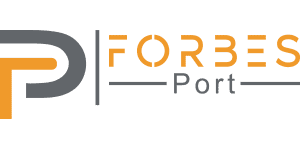Exploring the Industrial Engineering Course in the Philippines: An In-Depth Guide

Industrial engineering (IE) is a versatile and dynamic field focused on optimizing complex systems, processes, and organizations. It integrates principles from engineering, mathematics, and social sciences to improve efficiency, productivity, and quality. In the Philippines, industrial engineering is a popular choice for students seeking a challenging and rewarding career that offers diverse opportunities across various industries.
Overview of Industrial Engineering in the Philippines
Historical Context
Industrial engineering has been part of the Philippine education system for several decades. The field gained prominence in the mid-20th century, aligning with the country’s industrialization and economic growth. Today, numerous universities and colleges offer comprehensive IE programs, contributing to the development of skilled professionals who play critical roles in both local and global industries.
Educational Institutions Offering IE Courses
Several prestigious institutions in the Philippines offer industrial engineering course philippines programs. These include:
- University of the Philippines Diliman (UP Diliman)
- De La Salle University (DLSU)
- Ateneo de Manila University
- Mapúa University
- University of Santo Tomas (UST)
These universities provide rigorous curricula designed to equip students with theoretical knowledge and practical skills essential for success in the field.
Curriculum and Core Subjects
Foundational Courses
The industrial engineering curriculum typically starts with foundational courses in mathematics and sciences. Students take subjects such as calculus, physics, and chemistry, which form the bedrock of engineering principles. These courses ensure that students have a solid understanding of fundamental concepts.
Specialized Industrial Engineering Courses
As students progress, they delve into specialized IE courses. Key subjects include:
- Operations Research: This course covers techniques for optimizing processes and decision-making using mathematical models.
- Production and Operations Management: Students learn about efficient production systems, inventory control, and supply chain management.
- Quality Control and Management: This subject focuses on maintaining and improving quality in manufacturing and services through various methodologies and standards.
- Ergonomics and Human Factors Engineering: This area examines the interaction between humans and systems to enhance safety, comfort, and performance.
- Systems Engineering and Analysis: Students study complex systems, their components, and how to integrate them effectively.
Practical Training and Internships
Practical experience is crucial in industrial engineering education. Many programs incorporate internships and on-the-job training, allowing students to apply their knowledge in real-world settings. These experiences provide valuable insights into industry practices and help students build professional networks.
Career Opportunities for Industrial Engineers
Diverse Industry Applications
Industrial engineering graduates in the Philippines have a broad spectrum of career opportunities. They can work in various industries, including manufacturing, healthcare, logistics, telecommunications, and finance. Their ability to optimize processes and systems makes them valuable assets in any organization.
Typical Roles and Responsibilities
Common roles for industrial engineers include:
- Process Engineer: Focuses on improving manufacturing processes to enhance efficiency and reduce costs.
- Quality Assurance Engineer: Ensures products and services meet quality standards and regulatory requirements.
- Operations Manager: Manages daily operations, aiming to maximize productivity and efficiency.
- Supply Chain Analyst: Analyzes and optimizes supply chain processes to ensure timely and cost-effective delivery of goods and services.
- Project Manager: Oversees projects from inception to completion, ensuring they meet objectives and deadlines.
Potential for Professional Growth
The demand for industrial engineers is expected to grow, driven by the continuous need for process improvement and efficiency across industries. With experience and advanced education, IE professionals can advance to senior management positions, such as operations director or chief operations officer (COO).
Challenges and Future Directions
Addressing Industry Needs
One of the challenges faced by industrial engineering education in the Philippines is keeping pace with rapid technological advancements. Universities must continually update their curricula to include emerging technologies such as artificial intelligence, big data analytics, and automation. This ensures that graduates are well-prepared to tackle contemporary industry challenges.
Emphasis on Sustainability
Sustainability is becoming increasingly important in industrial engineering. IE programs are incorporating sustainability principles into their curricula, teaching students how to design and implement environmentally friendly and socially responsible processes.
Collaboration and Research
Collaboration between academic institutions and industries is vital for the growth of industrial engineering. Joint research projects, industry partnerships, and academic exchanges can drive innovation and provide students with exposure to cutting-edge developments.
Conclusion
The industrial engineering course in the Philippines offers a comprehensive education that prepares students for a dynamic and rewarding career. With a robust curriculum, practical training opportunities, and diverse career prospects, industrial engineering is an excellent choice for those interested in optimizing systems and processes. As the field continues to evolve, future industrial engineers will play a crucial role in driving efficiency, innovation, and sustainability across various industries.




